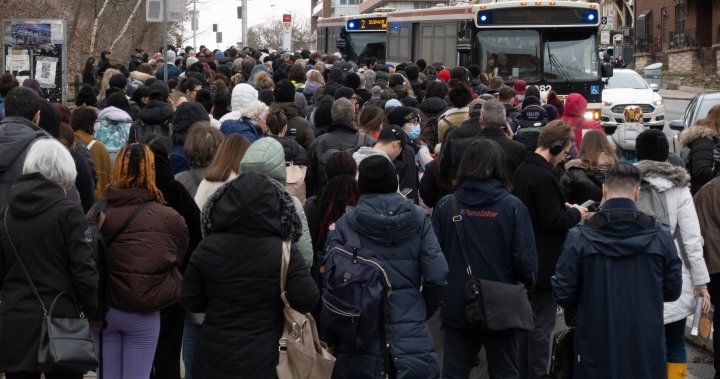Canada
Fire at TTC yard doubles subway wait times for Monday commuters

A Fire at Wilson Yard Disrupts Toronto Subway Services
On Monday afternoon, a fire broke out at the Wilson Yard, a key maintenance facility for the Toronto Transit Commission (TTC). The incident occurred at around 2 p.m. and was caused by an electrical issue. The fire disrupted the TTC’s ability to deploy additional trains for the afternoon rush hour, leaving commuters facing longer wait times and crowded stations.
The TTC took to social media to inform the public about the situation. In a post on X, the transit agency explained that the fire had interrupted its operations, particularly affecting Line 1: Yonge-University. As a result, the TTC was unable to add 17 extra trains that were originally planned to handle the increased passenger load during the afternoon rush hour.
The Impact on Commuters: Longer Wait Times and Crowding
The absence of these additional trains had a significant impact on commuters. Normally, the TTC operates 55 trains during the afternoon rush hour on Line 1. However, on Monday, only 38 trains were in service, reducing the frequency of trains and increasing wait times. Passengers experienced delays, with wait times doubling from the usual three minutes to up to six minutes.
While Mondays are typically lighter in terms of travel demand compared to other weekdays, the reduced service still caused inconvenience for many commuters. The TTC acknowledged the disruption and announced that extra staff would be deployed to monitor and manage potential crowding at busy interchange stations. This measure aimed to mitigate the impact of the reduced service and ensure passenger safety.
The Cause of the Disruption: Electrical Fire at Wilson Yard
The root cause of the disruption was the electrical fire at Wilson Yard, a critical maintenance facility for the TTC. The fire led to a power outage at the yard, which is essential for preparing and dispatching trains for service. Without power, the TTC was unable to complete the necessary maintenance and deployment tasks, resulting in the shortage of trains during rush hour.
The incident highlights the importance of maintenance facilities like Wilson Yard in ensuring smooth transit operations. Any disruption to these facilities can have a ripple effect on the entire network, leading to delays and inconvenience for passengers.
The TTC’s Response: Managing the Crisis and Communicating with Passengers
In response to the fire, the TTC took swift action to manage the situation. The agency worked to restore power and resume operations at Wilson Yard as quickly as possible. In the meantime, the TTC focused on minimizing the impact of the reduced service by deploying additional staff to busy stations. These staff members helped manage crowding and provided assistance to passengers navigating the disrupted service.
The TTC also made an effort to keep passengers informed through social media and other communication channels. By providing regular updates, the agency aimed to reduce confusion and help commuters plan their journeys accordingly. This proactive approach to communication is crucial in maintaining trust and ensuring that passengers are aware of the steps being taken to address the issue.
Lessons Learned: The Importance of Resilience in Transit Systems
The incident at Wilson Yard underscores the importance of resilience in transit systems. While fires and other unforeseen events can disrupt operations, having robust contingency plans in place can help minimize the impact on passengers. The TTC’s ability to deploy extra staff and maintain communication with passengers demonstrates its commitment to providing reliable service, even in challenging circumstances.
Looking ahead, the TTC will likely review the incident to identify measures that can prevent similar disruptions in the future. This includes assessing the maintenance processes at Wilson Yard and ensuring that backup systems are in place to handle emergencies. By learning from this experience, the TTC can further improve its ability to provide consistent and reliable service to Toronto’s commuters.
Conclusion: A Temporary Setback for Toronto’s Transit System
The fire at Wilson Yard was a temporary setback for the TTC, but it also highlighted the agency’s resilience and commitment to passenger service. While the disruption caused inconvenience for many commuters, the TTC’s swift response and clear communication helped mitigate the impact. As the agency works to restore full service and prevent similar incidents in the future, passengers can take comfort in knowing that the TTC is dedicated to maintaining the reliability and efficiency of Toronto’s transit system.